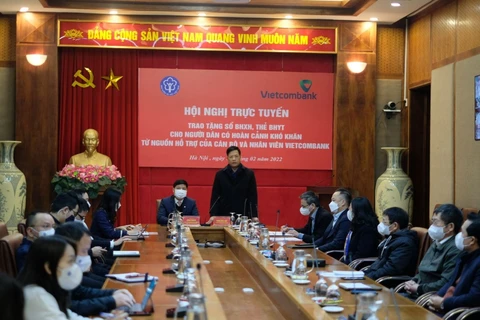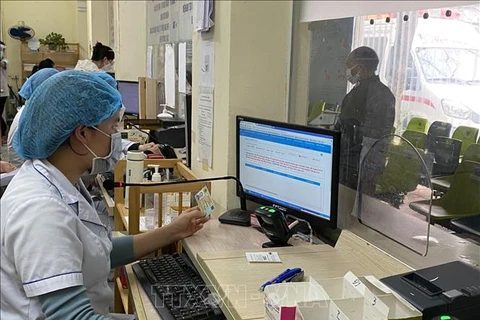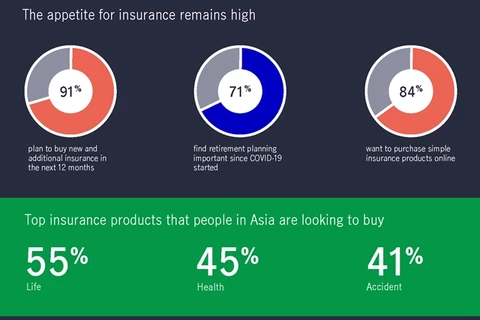Hanoi (VNA) - The Vietnam Social Security (VSS) has inked a memorandum of understanding (MoU) on realising health insurance policies with the US-ASEAN Business Council (USABC), the VSS announced on March 10.
The two sides have shared experience in implementing health insurance policies and consulting experts in procurement and safe use of medicines during health checkups and treatment covered by insurance since 2019.
The signing of the MoU aims to specify the scope of cooperation in health insurance, facilitating frequent exchanges between the VSS and US partners towards the sustainable development of the health insurance system in Vietnam.
USABC President and CEO Ted Osius said the US business community highly valued efforts and achievements by the Vietnamese Government, people and firms in fighting COVID-19 and protecting people’s health, and at the same time resuming production activities to catch up with the global economic recovery.
The MoU will be valid for five years from the date of signing. Under the agreement, the sides will bolster cooperation in health insurance, particularly in the development of sustainable universal health insurance coverage; assessing the quality of medical equipment and services covered by health insurance; and health insurance payment verification.
They also seek potential fields of cooperation such as digital application, social welfare consultation, and investment fund.
At the event, the sides shared experience in payment models for treatment of cancer and acute non-communicable diseases and solutions for Vietnamese patients to access modern medical treatment, among others./.
The two sides have shared experience in implementing health insurance policies and consulting experts in procurement and safe use of medicines during health checkups and treatment covered by insurance since 2019.
The signing of the MoU aims to specify the scope of cooperation in health insurance, facilitating frequent exchanges between the VSS and US partners towards the sustainable development of the health insurance system in Vietnam.
USABC President and CEO Ted Osius said the US business community highly valued efforts and achievements by the Vietnamese Government, people and firms in fighting COVID-19 and protecting people’s health, and at the same time resuming production activities to catch up with the global economic recovery.
The MoU will be valid for five years from the date of signing. Under the agreement, the sides will bolster cooperation in health insurance, particularly in the development of sustainable universal health insurance coverage; assessing the quality of medical equipment and services covered by health insurance; and health insurance payment verification.
They also seek potential fields of cooperation such as digital application, social welfare consultation, and investment fund.
At the event, the sides shared experience in payment models for treatment of cancer and acute non-communicable diseases and solutions for Vietnamese patients to access modern medical treatment, among others./.
VNA

























